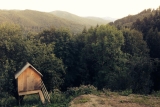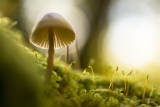Why is it important to conserve water around the home?
An introduction to water use
Water is one of the most essential resources for life, and yet it is often taken for granted. Every day, we use water for drinking, cooking, bathing, and cleaning. But where does this water come from? In many cases, it comes from underground aquifers, which are slowly being depleted by our constant demand. In other cases, it comes from surface water sources such as lakes and rivers. However, these sources are also under strain due to pollution and overuse. As a result, it is becoming increasingly important to conserve water and use it wisely.
After all, it is also a limited resource. In many parts of the world, water shortages are a major problem, and it is only getting worse as the population grows. One way to help conserve this vital resource is to be mindful of water usage in the home. Simple changes like fixing leaks or using drought-tolerant plants can make a big difference. Conserving water not only helps to preserve this essential resource, but it can also save money on your utility bills.
In addition, using less water helps to reduce the strain on local water treatment facilities and can even improve water quality. By taking steps to conserve water in the home, we can all do our part to protect this vital resource.

How does water wastage occur?
According to water use guides, using too much water can very easily be done by anyone. One common cause is leaky pipes or appliances. A small drip can quickly add up to a lot of water over time, and even a small leak can waste hundreds of gallons per month.
Another cause of water wastage is over-watering lawns and gardens. While it’s important to give plants enough water to stay healthy, it’s possible to overwater them, leading to water runoff and evaporation. Water wastage can also occur simply from leaving the tap running while brushing teeth or doing dishes.
Every little bit adds up, so it’s important to be conscious of how much water we’re using on a daily basis. By making small changes in our habits, we can help to conserve this vital resource – so let’s explore what we can do to help.
Tips on how you can conserve water
- Take shorter showers. Where possible, aim to shower for five minutes or less. You could also install a low-flow showerhead to reduce the amount of water used per shower. In the average home, showers account for nearly 17% of water usage indoors, so by cutting down on shower time, we can make a significant impact. Next time you jump in the shower, challenge yourself to take a shorter one – your wallet and the planet will thank you!
- Turn off the tap when you’re brushing your teeth or shaving. For most of us, turning on the tap is something we do without giving it a second thought. But did you know that even a small drip can waste a lot of water? That’s why it’s important to turn off the tap when you’re brushing your teeth or shaving. Just a few seconds of running water can quickly add up, and that adds up to a lot of wasted water over time.

- Only run the dishwasher or washing machine when they’re full. Dishwashers and washing machines are essential appliances in any home. They save time and energy, and they can even help to reduce your water bill. However, it’s
important to only run these appliances when they’re full. Otherwise, you’re just wasting water and electricity.
- Fix any leaks in your plumbing system as soon as you can. No one likes dealing with leaks, whether they’re in your roof or your plumbing. Left unaddressed, even a small leak can cause a lot of damage – and waste a lot of water. Water can weaken structural elements, cause mould growth, and lead to expensive repairs. And of course, a broken pipe can lead to a flood. That’s why it’s important to fix any leaks in your plumbing system as soon as you can. With a little preventive maintenance, you can keep your pipes in good condition and avoid the headache of dealing with water damage down the line.
- Collect rainwater to use for watering plants or washing the car. Many people aren’t aware of the importance of rainwater. It’s a renewable resource that can be used for many purposes such as watering plants or washing the car. Collecting rainwater is an easy way to save money and water. By doing this, you are also helping to conserve this valuable resource.

Source: yougen.co.uk












